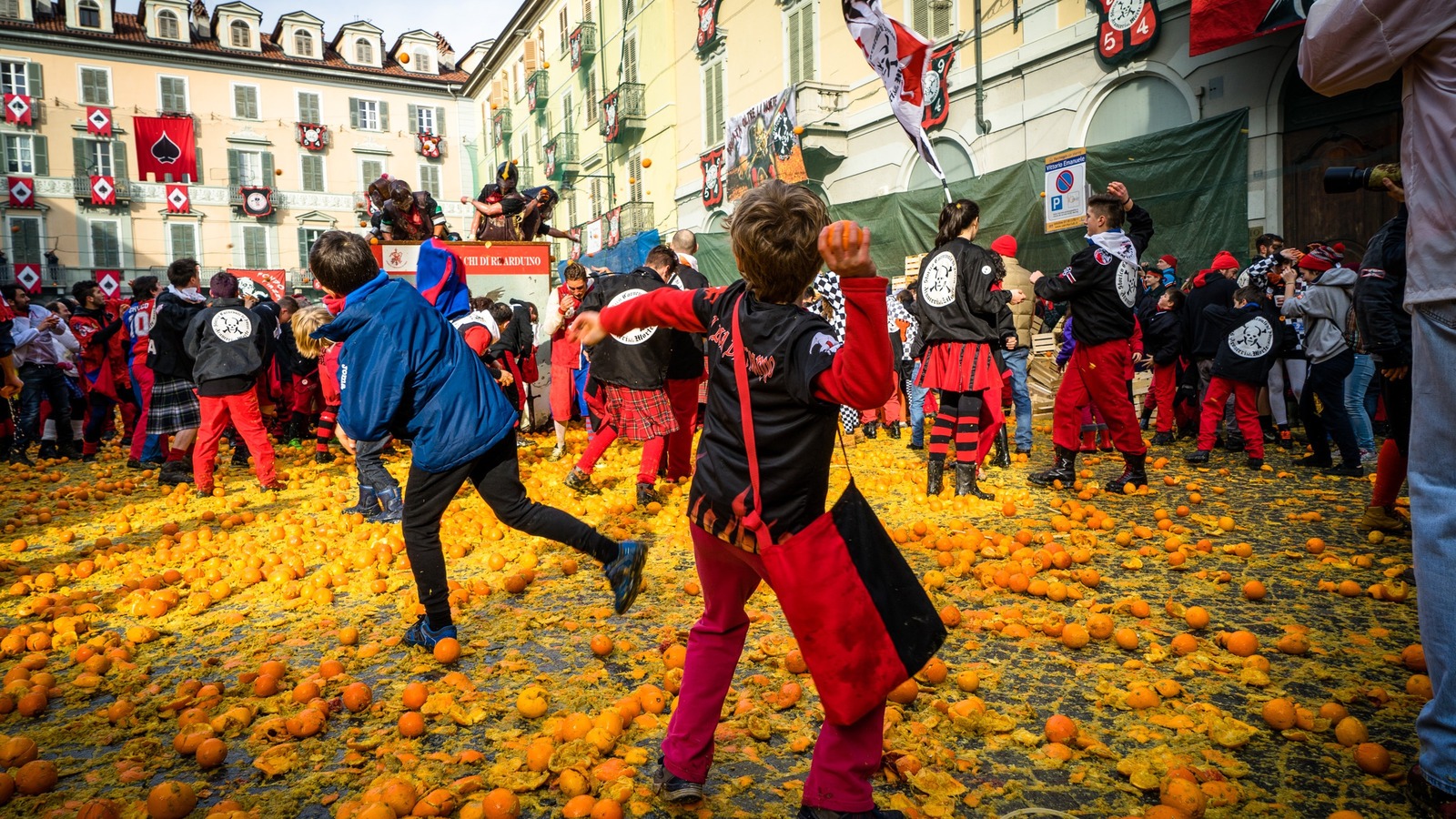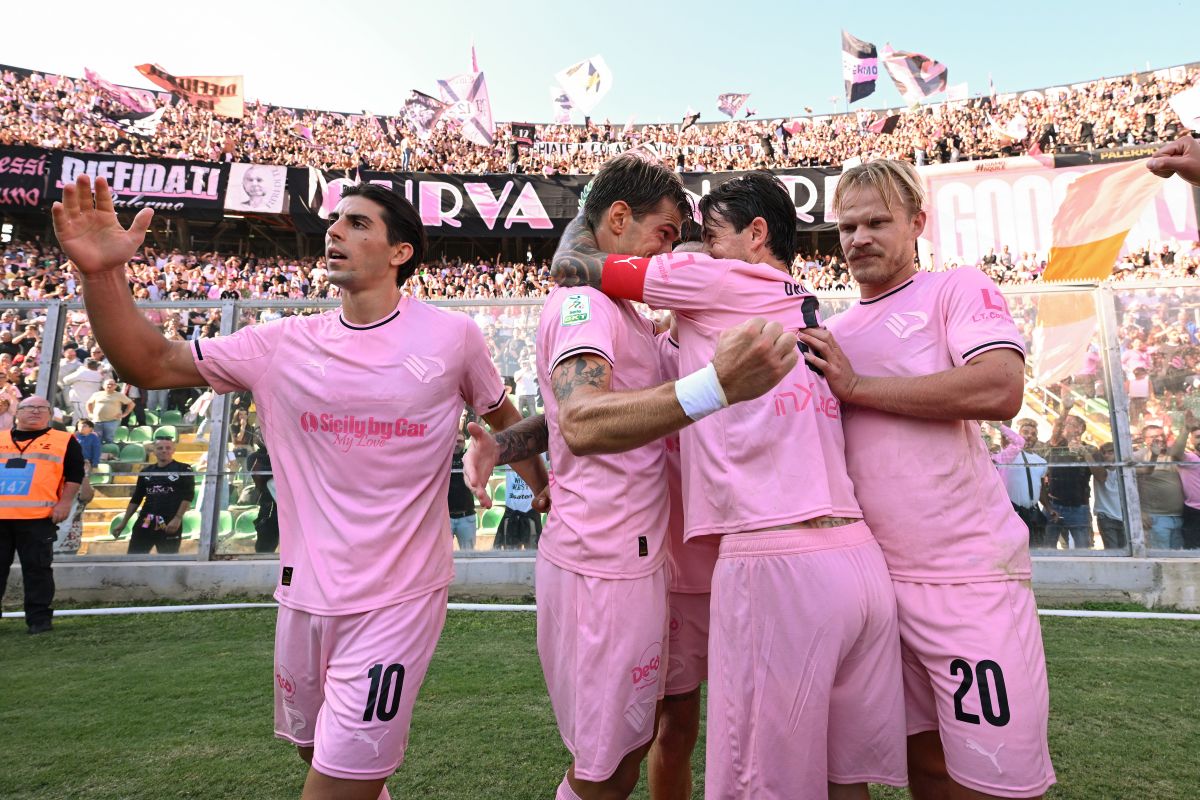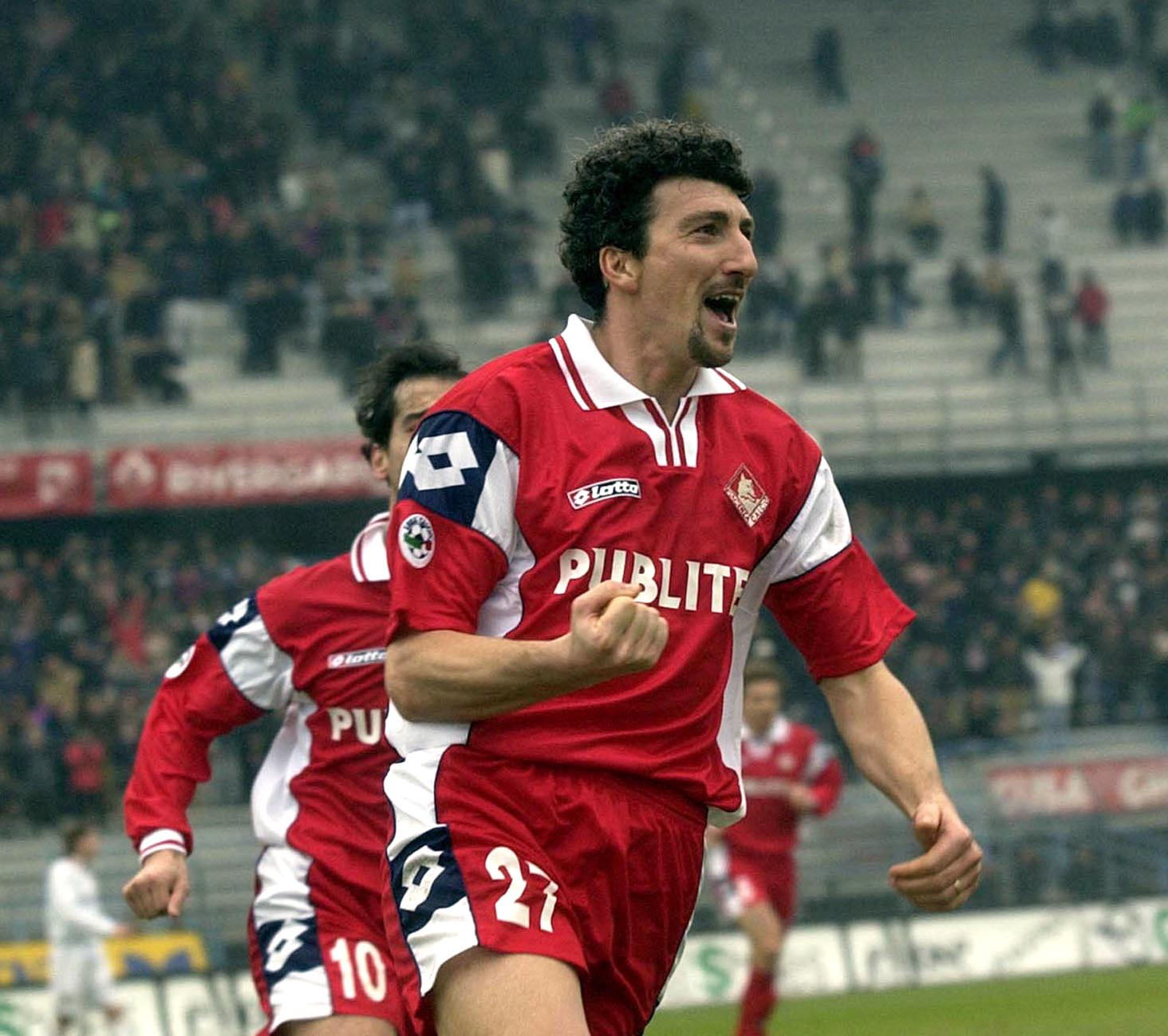
The Italian game has its large proportion of legends, but it also has the type of players who sit just underneath legendary status: the cult hero.
Calcio is full of cult heroes. Players who are loved by fans, but perhaps lack that special ingredient to become a club legend.
This could be for a variety of reasons: didn’t stay long enough; flourished for only a season or two before moving on; injury; ability to relate to fans and the cause of a club, scoring a vital goal that secured a trophy or survival from relegation.
In essence, there’s a myriad of reasons how a player can morph into a cult hero.
Our Destination Calcio writers discuss their favourite cult heroes and why.
Dario Hubner
Il Bison is perhaps the calcio epitome of a cult hero. A man who scored goals for fun during his 23-year career, Dario Hubner never hung around long enough to become a legend at any one club, but is a cult hero to several different sides.
He made his name at Cesena in the mid 1990s, where he scored 74 goals in Serie B across five seasons. This won him a move to newly-promoted Serie A side Brescia in the summer of 1997.
Aged 30, Hubner was now getting his taste of the good life atop the calcio football pyramid. In typical Hubner fashion, he scored on his debut against Inter Milan, with an assist from a young unknown called Andrea Pirlo.
His debut was upended by one Alvaro Recoba (himself a cult hero), who produced one of the greatest cameo performances ever seen on a football pitch. The Uruguayan scored two absolute rockets to overshadow Ronaldo on his debut and send the Interisti home happy.
Hubner and Brescia went back to Serie B at the end of 1997-98, but he scored 42 league goals in the next two seasons and helped the Rondinelle back into the big time. He spent his final season teaming up with Roberto Baggio (the very definition of a calcio legend) before being released.
Hubner, a chain-smoker, joined Piacenza and had the season of his life. He jointly won the Capocannoniere title with Juventus’ David Trezeguet in 2001/02, both on 24 goals apiece.
Trezeguet was 24-years-old, Hubner was 35.

His form for Piacenza was enough for Milan to take him on a trial during a pre-season tour, but his smoking alarmed those at Milanello, and he wasn’t offered a contract.
After Piacenza dropped down to Serie B at the end of the 2002/03 season, Hubner’s career wound down with stints at Ancona, Perugia and Mantova in Serie C1.
Yet the glory of Hubner was that in an Italian football world that’s highly rigid, where diet is the utmost importance and professionalism is gospel, Hubner showed that you could, slightly, negate all those elements and still make it to the top.
He never became a fully-fledged legend at any one club because he never stayed long enough, but did more than enough to earn cult hero status. Along with Igor Protti, Hubner is the only striker to win the Capocannoniere crown in Serie A, B and C. Impressive considering he never played for any big or even medium-sized club.
If Hubner was in Serie A today, he’d easily have earned a cap or 30 for Italy, considering the dearth of top Italian strikers in the modern climate. Yet whether he would’ve even made it that far today, given his appetite for nicotine, remains to be seen.
Emmet Gates
Pasquale Bruno
Yes, there have been better players and, yes, there have been players who have won more. But when your nickname is “The Animal” you don’t just belong on a roll of cult heroes, you arguably deserve to be the first name on the list.
Enter Pasquale Bruno. In an era of uncompromising defenders, Bruno stood head and shoulders above the rest. Here was a man who wouldn’t think twice about lunging into the kind of tackle that would not be shown before the watershed today and that once fought a sending off so vigorously it took both teams to drag him off the pitch.
And yet, he has often rejected his reputation as a thug. And rightly so.
He may have been a brute and a s***house at times, but there was far more to Bruno’s game than sheer violence.
Having come through Lecce’s academy, Bruno made his Serie B debut aged 17 in 1979, before moving to Como four years later where, under the tutelage of former Italy and Inter Milan defender Tarcisio Burgnich, he won promotion to Serie A at the first time of asking.
A bruising right-back, Bruno’s top-flight debut was typically controversial, with the defender sent off 83 minutes into the Lariani‘s stalemate draw with Juventus after scything down Zbigniew Boniek. During four years on the shores of Lake Como, Bruno developed into one of Serie A’s most promising defenders and convinced former Lariani manager Rino Marchesi to bring him to Juventus in the summer of 1988.
By then, Bruno had become developing a reputation as one of the most feared and no-frills defenders in Serie A, so much so that his teammate Roberto Tricella would nickname him ‘O Animale’.
The monicker was also a reference to Pasquale Barra, a notorious Camorra killer also known as ‘O Nimale’. Although Bruno didn’t like it, the nickname stuck even once he left Juventus to move across the Granata side of Turin.
“I’m not a gangster, I’m just tough,” he told Il Corriere della Sera in 1992. “Please call me ‘Diabolik’ [a famous fictional character of an Italian comic series]. That’s what my family calls me.”
Admittedly, Bruno’s reputation wasn’t quite without its merits. “Nail them for us, Pasquale Bruno,” sang the Torino ultras in the Curva Maratona, a plea Bruno was often happy to answer.
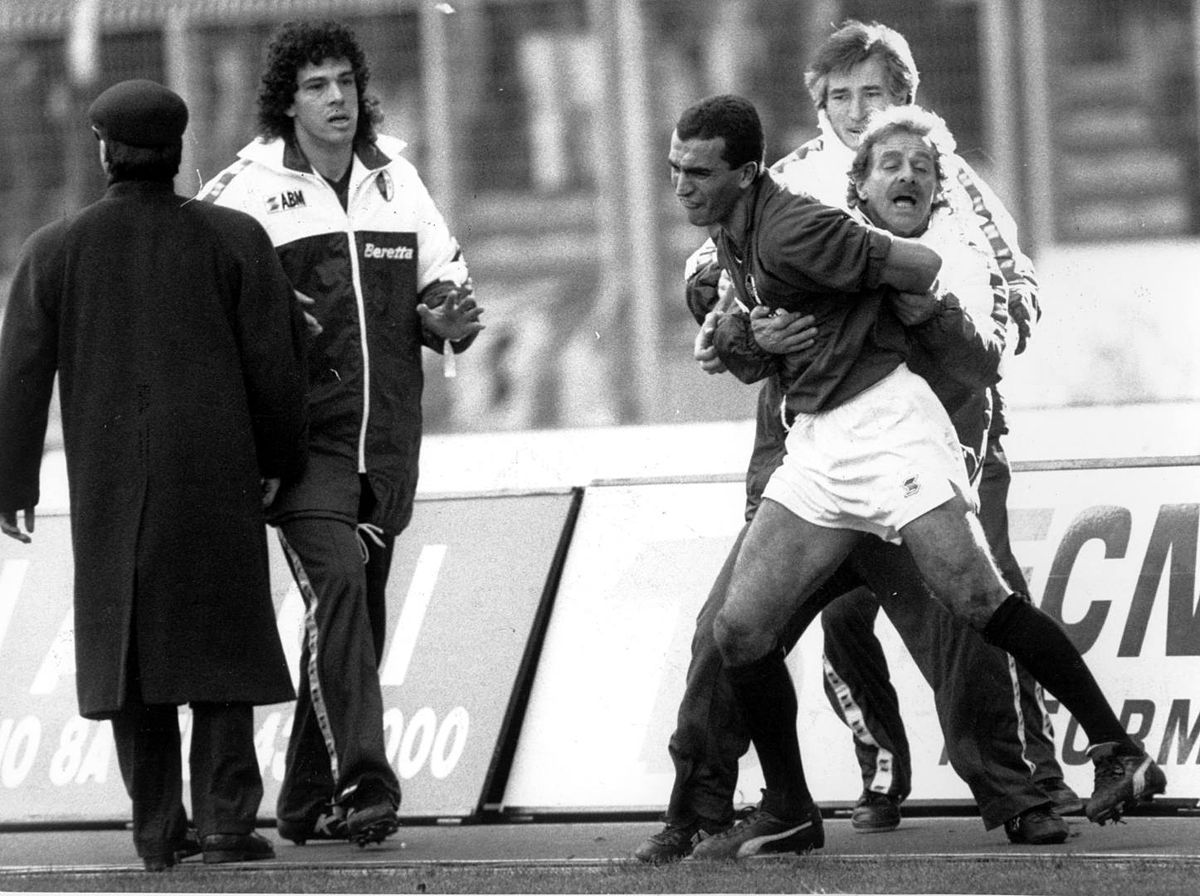
Quiet and unassuming off the pitch – he once famously proclaimed he never had a friend in football, save for former Juventus teammate Ian Rush, with whom he’d regularly go out drinking – he was a brutal customer once the whistle went.
At Juventus, he traded blows with Roberto Baggio after being sent off for a typically robust tackle on the then-Fiorentina No10, while at Torino he was sent off 16 minutes into the Derby della Mole.
Having crunched Pierluigi Casiraghi with a brutal tackle, he then planted an elbow right on the face of the Juventus striker, leaving Piero Ceccarini no choice but to send him off.
Bruno set off in pursuit of the referee, before eventually being escorted off the pitch by his teammates and receiving an eight-game ban, then reduced to five. Eighteen months later, his lunge on Florin Raducioiu resulted in the Romanian being sidelined for four months with an Achilles injury.
Allegedly, Bruno had told the AC Milan midfielder in the tunnel: “I don’t feel like running today, behave or else there will be consequences.” Raducioiu, clearly, did not heed the warning.
And yet there was more to Bruno than brutality. Having won a UEFA Cup and Coppa Italia double with Juventus in 1990, he joined Torino just months later and became a defensive lynchpin of Emiliano Mondonico’s brilliant side, which reached the 1992 UEFA Cup final and won the Coppa Italia the following season.
“There weren’t many defenders who could keep me out of the game, to the point of making me lose my temper,” Marco Van Basten wrote in his biography.
“The only exception was Pasquale Bruno of Torino.”
Dan Cancian
Francesco Flachi
“I was an idol in Genoa. I had started the year with two goals and I had recently been called up by the national team too.”
These are the words of Francesco Flachi in 2021. The former Sampdoria captain spoke to the BBC about his rise and fall, a tale of what could have been.
For every tattoo Flachi had inked, there was a glamorous goal to match: bicycle kicks, pinpoint headers, ruthless volleys, free kicks and magical solo goals. The overhead kick against Salernitana is rated as his best.
Wearing the Sampdoria No 10 shirt once meant living up to certain expectations, and Flachi owned it for five seasons (from 2001), the second longest tenure behind Roberto Mancini (1987-97).
Aside from performing the playmaker role, goals were a must for any fantasista brave enough to demand such an iconic shirt. With 110 goals in 280 games, Flachi is the third-highest scorer at Samp, behind only Mancini and Gianluca Vialli.
And at 0.39 goals per match – only Vialli (0.43) scored at a faster rate than Flachi when considering Doria players who have appeared in more than 200 matches. Even the mighty Fabio Quagliarella (0.36, 106 goals in 293 matches) fell slightly short of Flachi’s impressive mark.
Unsurprisingly, peaking during the era of Christian Vieri, Alessandro Del Piero and Francesco Totti made it challenging to break into the national team setup, but Flachi earned his call-up from Marcello Lippi in 2004. Unfortunately for him, he never took to the field as Luca Toni and Fabrizio Miccoli got their chances.
When it comes to calcio bad boys and cult heroes, careers are susceptible to crashing rapidly, and Flachi’s story is remembered as one of the great cautionary tales.
Despite his denial, Flachi was banned for two months in 2006 for illegal gambling. He then received a two-year suspension the following year for using cocaine, thus ending his Sampdoria deal.
The Tuscan returned to competitive football in 2009 with then-Serie B side Empoli, scoring thrice in 13 appearances. At 34, Flachi moved to Brescia, adding two goals to his overall career tally, but tested positive for cocaine once more and received a hefty 12-year ban.
“At first, watching football would make me sick, but then I rolled up my sleeves and slowly moved on again,” Flachi explained. “I opened two restaurants in Florence and I spent my time serving food. I am not a victim, I made a mistake and I don’t want others to go down the same path.”
Flachi was known as The Saviour of the Homeland (Salvatore della patria) for playing a crucial role in Sampdoria’s rebirth between 1999 and 2003 and subsequent promotion to Serie A.
For most cult legends, winning promotion with a struggling side or merely saving a team from relegation qualifies them. Apart from winning the Serie B title with Samp, Flachi also won the second division in his debut season at Fiorentina, where he also won the Coppa Italia.
For all the strife in Liguria and Lombardia, Flachi returned to Tuscany to get his life sorted, making a long-awaited comeback as a player in 2021 at 46, playing 30 minutes for fifth-tier team Signa 1914.
“This day cancels 12 years of disqualification. It is my rebirth,” Flachi told Gazzetta dello Sport. “This is the proof that I have also rebuilt.”
Francesco Flachi, proof that cult heroes are more resilient than the rest.
David Ferrini
Luis Oliveira
Born in Brazil but a full Belgium international, Luis Oliveira was a huge hit in Italy’s top flight and beyond.
Arriving at Cagliari, “Lulu” as he was affectionately christened by fans, proved an instant hit with supporters as he netted 42 league goals in a four-year stint with the club.
Not that those stats enamoured him to his head coach. Carlo Mazzone took issue with his new striker, in particular his looks. Oliveira’s distinctive curly hair and ear piercings led his boss to describe him as looking like he was “from the circus”.
In fairness to Mazzone, there was little in his physique that suggested the Belgium international was a footballer. Just 5ft 7in, he was stocky in build but his appearance was deceptive.
He endlessly terrorised Italian defences – especially the usually formidable backline of Juventus. He scored four times in his first four seasons in Italy against the Old Lady, including an effort in the Uefa Cup in 1994.
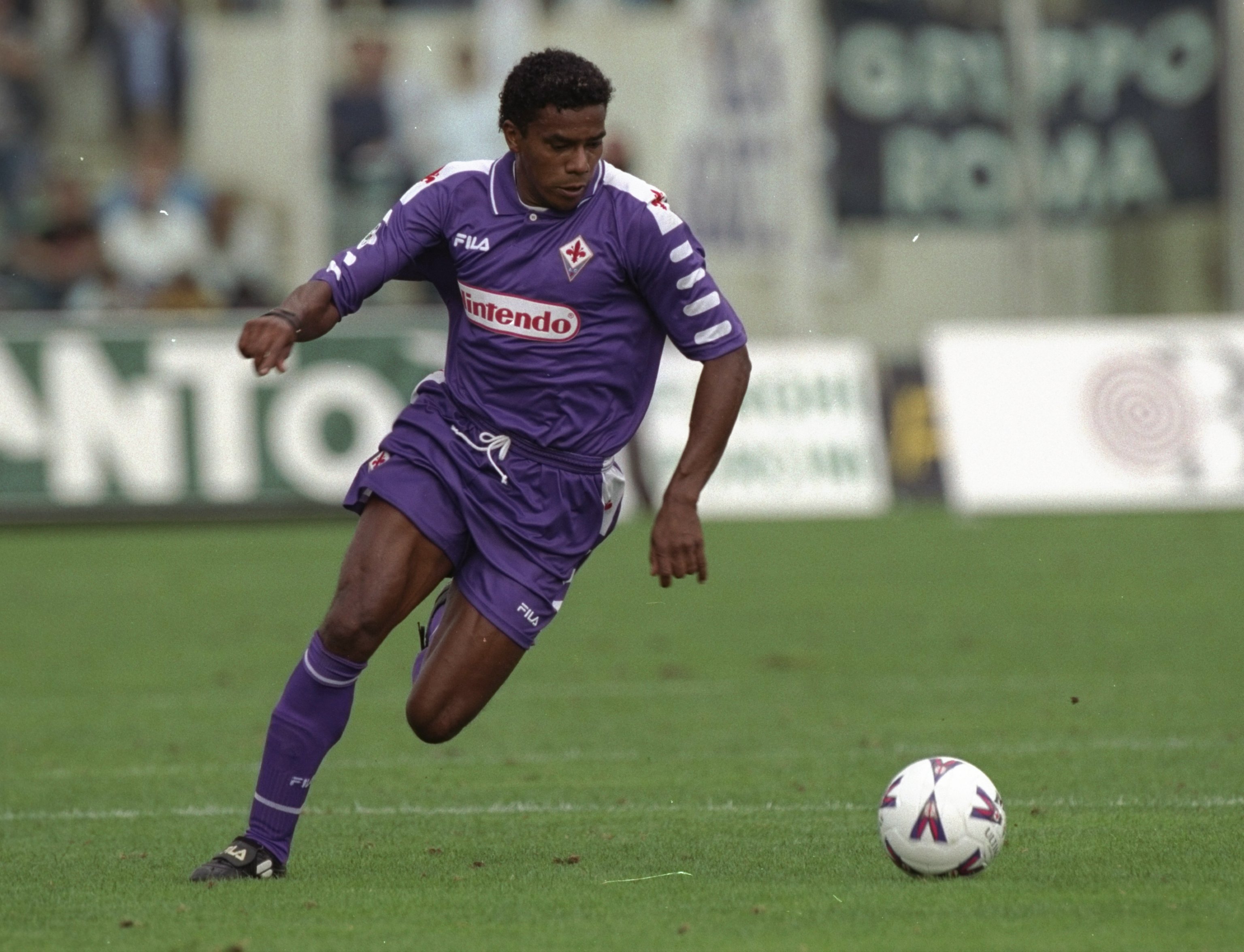
His performances earned him a big move to Fiorentina, where he was part of a formidable attack alongside Gabriel Batistuta and fellow Brazilian Edmundo.
It was with La Viola that he won his only trophy in Italy, the Italian Super Cup in 1996. He flourished in Florence, scoring 27 league goals before financial difficulties forced the club to sell him and their other stars as a dream team built around Rui Costa was dismantled.
That brought on a return to Cagliari, where he set an unwanted piece of Serie A history. In a clash with Reggina in December 1999, Oliveira picked up the quickest ever red card in the league’s history as he was given his marching orders after just 50 seconds for a challenge on Nenad Pralija.
His disappointing return to Sardinia signalled the decline of his talents, although there was a sensational one-season stint with Como where he was Serie B’s top scorer and helped fire them to promotion.
Despite the underwhelming return, Oliveira was still inaugurated into Cagliari’s hall of fame – and remains a Serie A poster boy from the iconic nineties.
Related Articles
Related Articles
Football rivalries, world-class sport, surreal carnivals, and a tradition you won’t find anywhere else. Five events to catch in February.
In the latest edition of My Town, My Team, Napoli fan Alex told us why everybody should visit Naples at least once.
Sampdoria against Palermo at the Stadio Luigi Ferraris is just one of the standout matches to be shown live on Destination Calcio TV.


